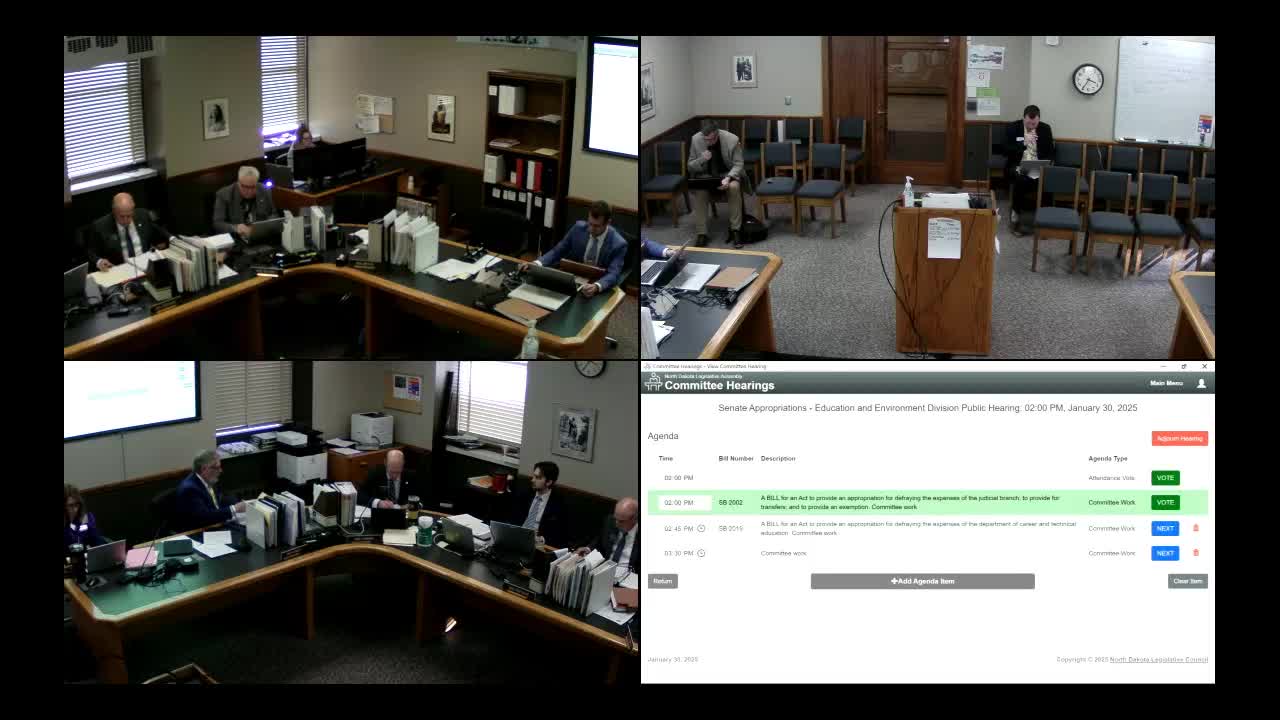Article not found
This article is no longer available. But don't worry—we've gathered other articles that discuss the same topic.
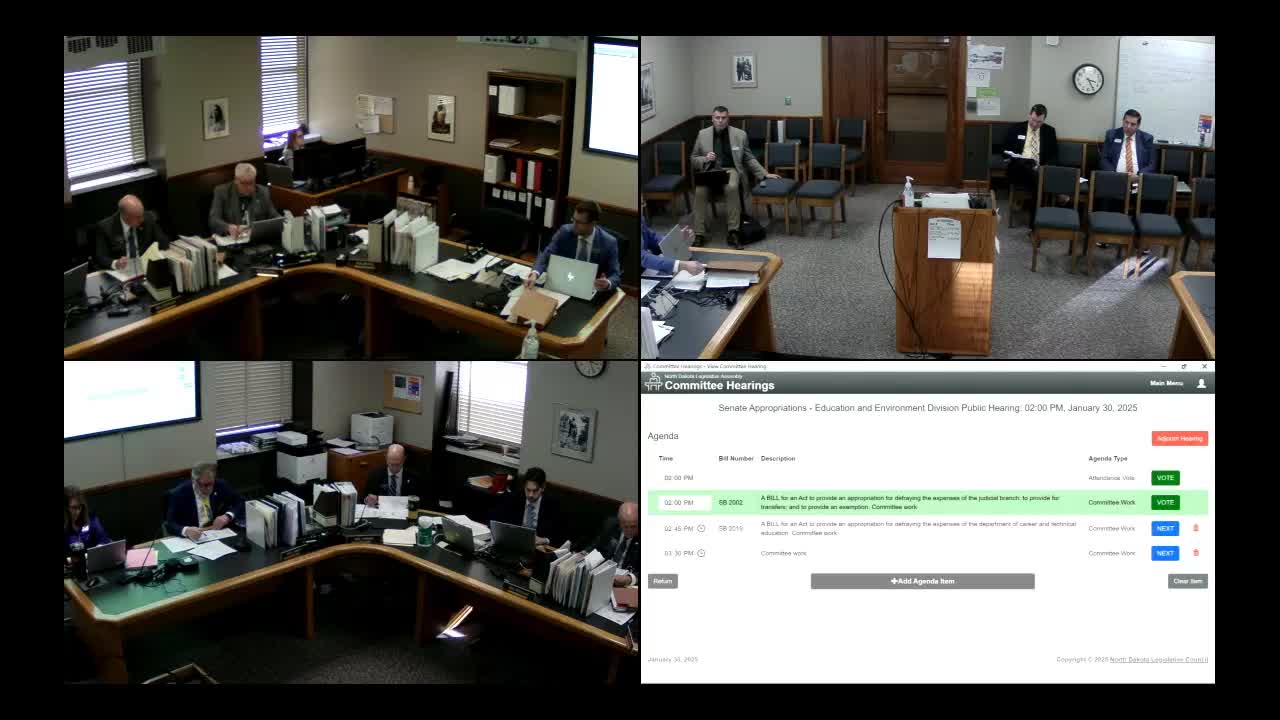
Committee signals partial support for CareerTech requests; adds TrainND and Marketplace for Kids funding
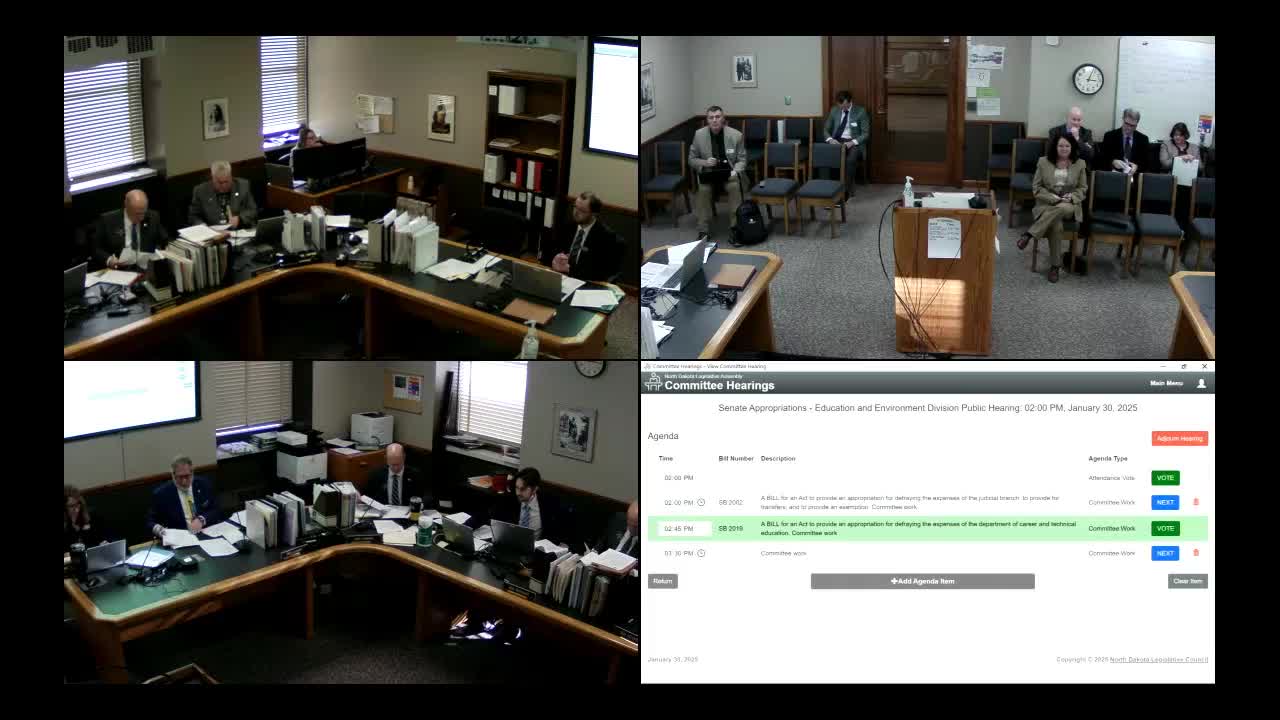
Committee hears judicial branch request to prioritize IT positions and selected FTEs in budget
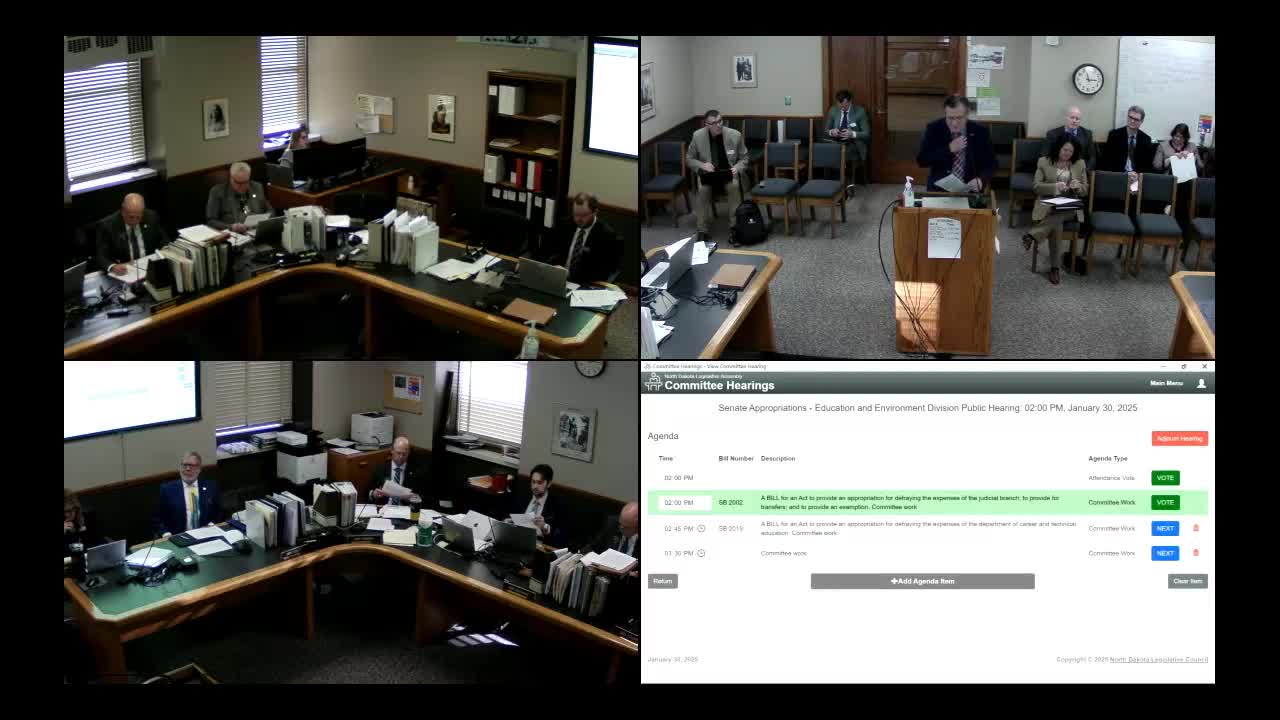
Cass County commissioner asks lawmakers to consider ways to recover county costs for court facilities
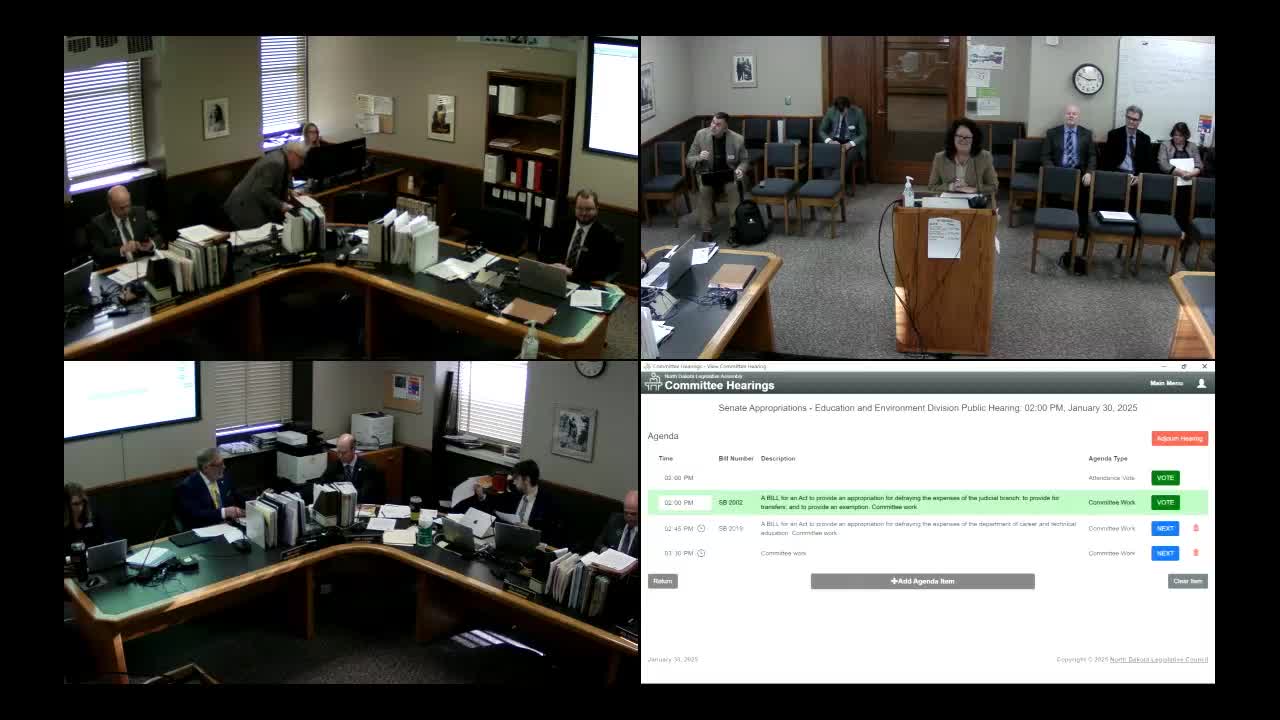
State Guardian ad Litem director urges budget increase to address high turnover and caseloads
